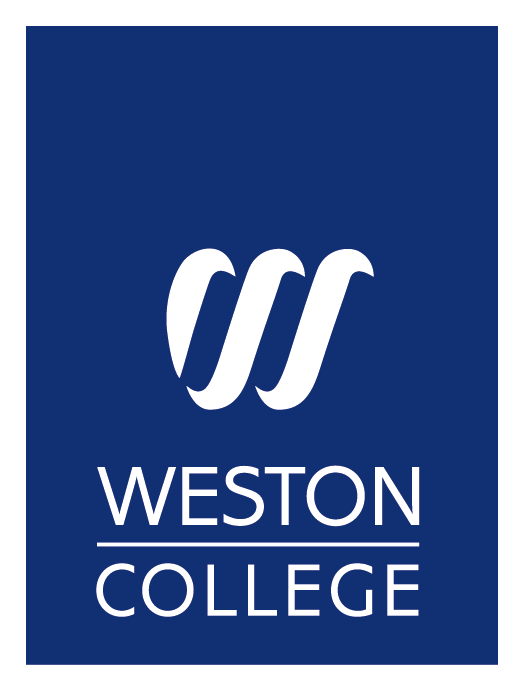
Autism Spectrum
Our provision for students on the autism spectrum leads the field Nationally. The College is proactive in informing the sector, sharing good practice and continually developing provision for students.
Nationally, fewer than one in four school leavers with autism stay in further or higher education, but at Weston College we have a 98% retention of students on the autism spectrum.
Nationally, just 15% of those with autism have full-time jobs while another 9% are in part-time jobs. We have a 33% success rate of students with autism progressing in to paid employment. The rest go onto other meaningful destinations including further study, university, and independent living.
Our aim is to provide support which can help students understand how their autism may impact on their learning and how they can work with specialist support teams to access a curriculum which addresses their individual needs, aspirations and vocational focus.
Students are encouraged to work with the team to develop strategies to accommodate their differences and know how to inform others on how they learn most effectively. The team has extensive knowledge and experience of working with young people on the autism spectrum; we aim to offer a coherent and coordinated approach to support.
To extend the curriculum opportunities we can offer, we have a specialist training facility called Weston Bay. This is the first residential training facility available for students on the autism spectrum within a general further education college.
Find out about our autism spectrum residential centre...

Support with transition to degree-level study
The staff at Weston Bay provide support to students on the autism spectrum who are progressing to degree-level study, either at University Centre Weston or at other universities in the UK.
Intensive training in social and life skills can make the difference between success and failure when it comes to living in halls of residence or sharing accommodation with peers.
By the end of the program students have fed back that they are better prepared in all aspects of university life and feel more confident that they will be able to cope.
Support programme
Close partnership working between internal staff and external agencies is an integral part of the specialist support process. The autism team works with the student and their tutor to provide a bespoke support programme.
Once a student’s needs are identified, support may include:
- Specialist teaching enabling a student to understand and develop strategies to overcome any difficulties they may have
- Mentoring support
- Independent living training
- Social skills training
- Study skills
- Work placement support and mentoring
- Job preparation support.
Our ethos
In our opinion, valuing people on the autism spectrum creates an ethos beneficial to both learners and professionals.
Through demonstrating that we value learners’ differences, we seek to gain their trust and respect. This can create a professional relationship that not only enhances our understanding of autism, but improves provision and also promotes the concept of inclusive education.
We strive to create an enabling environment which offers shared understanding and experiences. As a team of well qualified practitioners, experienced at working with young people on the autism spectrum, we are able to reflect and respond to the challenges of the work with a coherent and co-ordinated approach.
Staff and students often share the same working space which presents learners with a safe environment; they are able to meet with peers, with the added benefit of continual support and feedback from a specialist team of practitioners.
Working as a team with our students creates and maintains consistent practices. We understand from learners that in a world of uncertainty where ‘fear’ may be the main emotion this provides a framework for consistency and predictability. This ethos offers a holistic network of support, where all staff are familiar with the needs of individual learners. This lessens the dependency of individuals on support and thus promotes self-esteem and independence.
What support do we offer?
Transition
We provide supported transition for learners to access personalised programmes as they progress from school to college.
This support starts from Year 10 in mainstream and special schools. It involves members of the specialist team visiting schools and working in partnership with learners and parents, schools and other support agencies.
Transition into and out of College is an extremely important element of the specialist provision and as such we hold transition days which are held late in the summer term, prior to September entrance. This allows students to become familiar with the College environment and to allow them to get to know the specialist team who will be supporting them during their time at College. It is this planned transition into college that plays a significant role in learners being able to access College successfully from the beginning of the academic year.
Similarly, transition programmes are devised and delivered to support individuals with their transition out of college into the next phase of their development, whether that be further training, higher education, supported or paid employment or independent living.
Close partnership working with internal and external agents is an integral part of the specialist support process. In addition we have recently opened Weston Bay Hotel which is a state of the art facility to support learners during their transition out of college. The facility offers students a rare opportunity to put the skills they have developed in College into practice in a real life independent living environment and enables students to gain the confidence that they may need to progress on to the next phase of their development. For more information, see the Weston Bay page.
Personalised programmes
The team work together with the learner and their tutors in order to provide a tailor made individual programme that ensures the learner’s needs are identified and met. This may include:
- Additional support
- One-to-one classroom support
- Social skills
- Differentiating the curriculum
- Providing additional resources.
Tutorials
One-to-one tutorials with a specialist tutor are held depending on a student’s individual needs but take place at least once per week. These sessions focus on the learner’s wellbeing, academic needs and personal and social development.
Support office
We share our office space with learners as this provides a safe and inclusive environment. This provides an opportunity to socialize with peers, take time out or seek support from the team.
Social skills
The specialist autism team facilitate sessions that aim to develop social skills appropriate to everyday living.
Exam access arrangements
This may include extra time, a separate room, use of specialist equipment, a rest break, scribe or a reader.
How to we arrange support?
If a learner requires support a member of the team will meet with them and their family/carer to discuss the student's needs. Following this, an Initial Needs Assessment will be conducted where the learner will discuss their support needs, learning styles and goals etc. This information will be used to start to develop the learner’s individualised support programme.
If a student requires support a member of the team will meet with them and their family/carer to discuss their needs. Following this, an Initial Needs Assessment will be conducted where the learner will discuss their support needs, learning styles and goals etc. This information will be used to start to develop the learner’s individualised support programme.
Feedback
Learner feedback:
"I feel that support is very helpful, mostly with discussing the social and educational aspects of my Asperger's. My support tutor offers a fresh narrative to situations when I badly need it and helps me to decide which path to take with regards to the future."
Parent feedback:
"I just wanted to thank you again for the significant amount of time you spent with me yesterday, discussing my son and plans for his support. I feel that my son is in the best place he could possibly be, and am much more reassured about the future. I know that my son isn't, in the scheme of things, as 'disabled' by his learning difficulties as many - but he is still my child and I naturally want the best for him, which you all seem to understand and appreciate. So thank you for that too!"
Learner case study
Nick is autistic and has always found it very difficult to communicate. However, through an individual specialist support programme, his confidence increased in social interactions with peers and adults. He is now an advocate of other learners who also experience barriers to learning and he has educated staff in how to manage learner behaviour to ensure their success.

